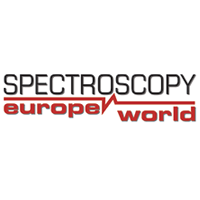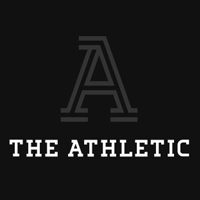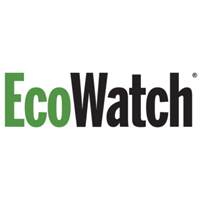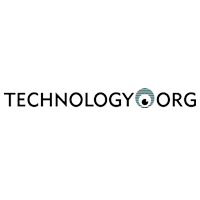Media Watch Archives
Hydrogen advocates look to capitalize on California's goal to replace diesel for back-up generation
Utility Dive -
The key draw of hydrogen is its cost-effectiveness at longer durations. For a completely resilient, 100% renewable data center with zero emissions, using hydrogen would translate to a levelized cost of electricity amounting to $119 per MWh, said Jack Brouwer, a professor of mechanical and aerospace engineering at the University of California, Irvine. … "Lithium-ion batteries are cheaper for short-duration storage, and they're more efficient. But eventually, when you have longer amounts of storage duration required, there will be a crossover point," where hydrogen becomes cheaper, Brouwer said. Read More
Local vibrational modes measured at individual crystalline faults
Spectroscopy -
Employing newly developed electron microscopy techniques, researchers at the University of California, Irvine (UCI) and other institutions have, for the first time, measured the spectra of phonons at individual crystalline faults, and they discovered the propagation of phonons near the flaws. “Point defects, dislocations, stacking faults and grain boundaries are often found in crystalline materials, and these defects can have a significant impact on a substance’s thermal conductivity and thermoelectric performance”, said senior co-author Xiaoqing Pan from UCI. Read More
What is ‘seam-shifted wake’ and which pitchers benefit most from it?
The Athletic -
Professor of electrical engineering and computer science at the University of California, Irvine Glenn Healey, tried to separate out each of the measurable forces on the baseball so that only the seam-shifted effect would remain. … He found that the effect was largest on sinkers and changeups—the two pitches in baseball that have seen the largest drop in usage over the last few years, coincidentally—and provided a list of pitchers that saw the most “side-force” effect in 2020. [Subscription required, you can request an electronic copy of the article by sending an email to communications@uci.edu.] Read More
We need better face masks—and origami might help
National Geographic -
Materials that are more readily available to the public can also be effective for some folded mask designs, says Jonathan Realmuto, a postdoctoral researcher at the University of California, Irvine. For example, non-fiberglass MERV-13 filters, which are commonly used for heating, ventilation, and air conditioning systems, are particularly effective and available at most hardware stores. … A pattern developed by UC Irvine's Realmuto and his colleagues was designed to be made in emergencies using readily available items. The folds, he says, limit leakage along the mask seams. Read More
Drastic changes ahead for the Earth’s tropical rain belt
Earth.com -
As Earth’s temperatures continue to rise, the tropical rain belt is expected to make a permanent shift to the north. A new study from UC Irvine confirms that climate change will alter the position of the rain belt, but reveals that the changes will be regionally inconsistent. … “This study combines the engineering approach of system’s thinking with data analytics and climate science to reveal subtle and previously unrecognized manifestations of global warming on regional precipitation dynamics and extremes,” said study co-author Professor Efi Foufoula-Georgiou. Read More
Climate Crisis Will Shift Tropical Rain Belt and Create Food Insecurity for Billions, Study Finds
EcoWatch -
A study published Monday found billions more could face food insecurity as Earth's tropical rain belt shifts in response to climate change, causing increased drought stress and intensified flooding. … The rain belt is projected to shift toward a warming atmosphere, co-author James Randerson, UCI's Ralph J. & Carol M. Cicerone Chair in Earth System Science, explained. "In Asia, projected reductions in aerosol emissions, glacier melting in the Himalayas and loss of snow cover in northern areas brought on by climate change will cause the atmosphere to heat up faster than in other regions," he told UCI News. Read More
UCI scientists measure local vibrational modes at individual crystalline faults
Technology.org -
Often admired for their flawless appearance to the naked eye, crystals can have defects at the nanometer scale, and these imperfections may affect the thermal and heat transport properties of crystalline materials used in a variety of high-technology devices. Employing newly developed electron microscopy techniques, researchers at the University of California, Irvine and other institutions have, for the first time, measured the spectra of phonons – quantum mechanical vibrations in a lattice – at individual crystalline faults, and they discovered the propagation of phonons near the flaws. Read More
Cephalopods’ invisibility powers could someday be ours, now that we know how to control them
Syfy -
Now scientists at UC Irvine have finally figured out the structure of reflectins at a molecular level and are able to manipulate them — almost like magic. … Alon Gorodetsky, who coauthored a study recently published in PNAS, told SYFY WIRE … “In essence, we demonstrated the ability to control how reflectin-based structures interact with light." Read More
Researchers develop at-home coronavirus saliva test
Technology.org -
Researchers in the Henry Samueli School of Engineering at the University of California, Irvine announced promising results in the development of a non-invasive at-home antigen test to detect the spike of SARS-CoV-2 proteins in saliva. The team, led by Michelle Khine, professor of biomedical engineering, posted their findings on the preprint server medRxiv.org. Khine is proposing a point-of-care platform that uses saliva, an electrochemical reaction and the children’s toy Shrinky Dinks to create the low-cost electrodes. Read More
Can at-home tests help Orange County get a handle on the pandemic?
Daily Pilot -
UC Irvine doctoral student and researcher Julia Zakashansky said at-home tests are necessary to combat the spread of the virus. Zakashansky and UC Irvine professor Michelle Khine are currently developing an at-home saliva test for COVID-19. … “So what we’re trying to allow is for a device that you can use and read yourself, within an hour of actually collecting your saliva,” Zakashansky said, comparing it to a pregnancy test. [Subscription required, you can request an electronic copy of the article by sending an email to communications@uci.edu.] Read More









